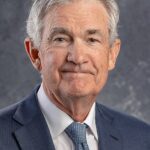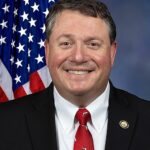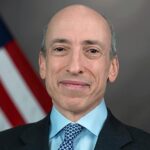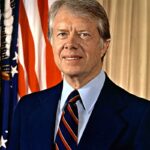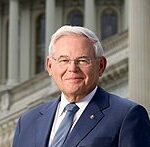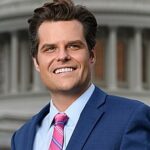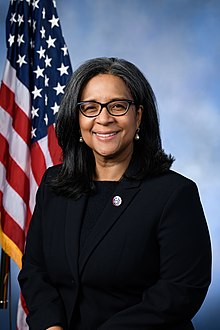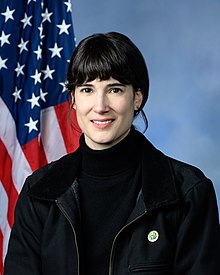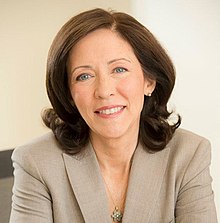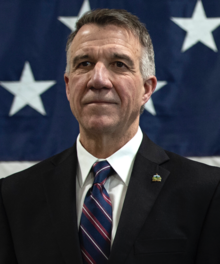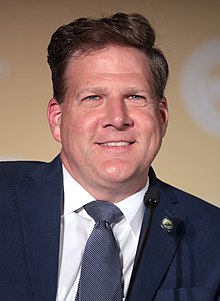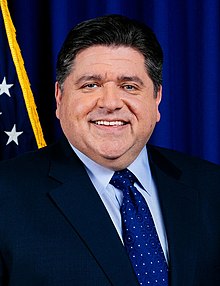 Jay Inslee served as the 23rd Governor of Washington from January 16, 2013, to January 15, 2025. A member of the Democratic Party, Inslee previously represented Washington’s 4th and 1st congressional districts in the U.S. House of Representatives. Born in Seattle in 1951, he earned a bachelor’s degree in economics from the University of Washington and a J.D. from Willamette University College of Law. Inslee is widely recognized for his leadership on climate change and progressive policy initiatives.
Jay Inslee served as the 23rd Governor of Washington from January 16, 2013, to January 15, 2025. A member of the Democratic Party, Inslee previously represented Washington’s 4th and 1st congressional districts in the U.S. House of Representatives. Born in Seattle in 1951, he earned a bachelor’s degree in economics from the University of Washington and a J.D. from Willamette University College of Law. Inslee is widely recognized for his leadership on climate change and progressive policy initiatives.
Policy Effectiveness and Legislative Record
Governor Inslee’s tenure was marked by significant legislative achievements, particularly in climate policy. He championed the Climate Commitment Act, establishing a cap-and-invest program to reduce greenhouse gas emissions. Under his leadership, Washington set ambitious targets for carbon neutrality and clean energy, aiming for 100% clean electricity by 2045.
Inslee also focused on social policies, including the implementation of a capital gains tax to fund education and child care, and the expansion of voting rights to formerly incarcerated individuals. His administration invested in infrastructure, education, and public health, striving to create a more equitable and sustainable state.
Key Initiatives and Programs Championed
- Climate Commitment Act: A landmark law capping carbon emissions and investing in clean energy projects.
- Capital Gains Tax: A 7% tax on high-end capital gains to fund education and infrastructure.
- Career Connect Washington: An initiative to expand apprenticeship and career training programs.
- Voting Rights Restoration: Legislation restoring voting rights to individuals upon release from incarceration.
Influence on Major Policy Areas
Inslee positioned Washington as a national leader in climate policy, advocating for aggressive emission reduction targets and clean energy investments. His administration’s policies influenced national discourse on environmental issues. Additionally, Inslee’s focus on education reform, healthcare access, and economic equity shaped state policies and set examples for other states to follow.
Ethics and Controversies
Throughout his tenure, Inslee faced criticism over tax policies, including the implementation of new taxes such as the capital gains tax and proposals for a wealth tax targeting individuals with assets over $100 million. Opponents argued these measures could drive businesses and wealthy individuals out of the state. Additionally, some criticized the state’s handling of homelessness and public safety issues under his administration.
Constituent Service and Public Engagement
Governor Inslee maintained active engagement with constituents through town halls, social media, and public appearances. His administration prioritized transparency and responsiveness, providing resources and information on state initiatives. Inslee’s communication efforts were particularly notable during crises, such as the COVID-19 pandemic, where he provided regular updates and guidance.
Bipartisanship and Collaboration
While Inslee’s policies often aligned with Democratic priorities, he demonstrated a willingness to collaborate across party lines on issues like infrastructure development and emergency response. His administration worked with federal and local officials to address challenges such as wildfires, public health emergencies, and economic recovery efforts.
Recent Focus and Public Stances
In his final years as governor, Inslee continued to advocate for climate action, proposing legislation to increase transparency in fuel pricing and combat corporate greenwashing. He also emphasized the importance of addressing economic inequality through tax reforms and investments in social services. After announcing he would not seek a fourth term, Inslee expressed his intention to remain active in public policy, particularly in environmental advocacy.
Conclusion
Governor Jay Inslee’s twelve-year tenure was characterized by ambitious climate initiatives, progressive social policies, and efforts to promote economic equity. While facing challenges and criticisms, his administration made significant strides in positioning Washington as a leader in environmental policy and social reform. Inslee’s legacy is marked by his commitment to addressing climate change and fostering a more inclusive and sustainable state.
